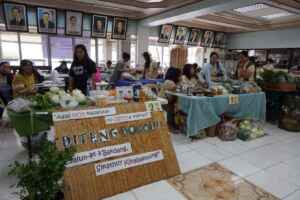NO PEACE WITHOUT TRUTH
The National Task Force to End Local Communist Armed Conflict (NTF-ELCAC) respects the role of UN Special Rapporteur Irene Khan and appreciates the time she devoted to her mission in the Philippines. Her visit, and the report that followed, are part of the vibrant exchange of views that democracy demands. But peace cannot be built on partial narratives. The task force must speak where the report was silent. The report describes the NTF-ELCAC as a threat to civic space. But the past six years say differently: we have opened spaces, not closed them. We have fostered unprecedented dialogue with the academe, once seen as a no-go zone for government presence. Today, professors and students sit with other peace stakeholders, especially former rebels, in forums that encourage activism and social advocacies that do not shield armed insurgency.
We have built close common ground with the religious sector by partnering with faith-based groups for healing, recovery, and truth-telling in conflict-affected communities. And we have actively engaged the international community, including UN agencies and other diplomatic partners, to explain both our strategy and the moral dilemma of protecting democracy from violent insurgency. The report misses the vital reality that the task force is not a mere echo chamber. It is a platform for difficult but necessary conversations. We are one with the report in rightly condemning accusations done irresponsibly or without basis. The report calls this “red-tagging,” but to us, this act is merely lying—in the way that certain supposedly legal organizations consistently lie about their organizational links to the underground CPP-NPA-NDF. To reiterate, it is not “red-tagging” when we state facts, when we quote casualty lists or arrested NPA members that include youth leaders from so-called national democratic organizations, when we cite sworn affidavits of cadres turned witnesses. This is plain truth-speak, and a call for accountability.
NTF-ELCAC is not a relic of the past—it is a product of it. We were not born out of convenience, but necessity. After five decades of violent insurgency and broken peace talks, EO 70 offered a whole-of-nation alternative: one where the military doesn’t work alone, and the state brings roads, livelihood, education, and hope into former rebel zones. The report speaks of a “diminished insurgency” as reason to dismantle the task force. But when CPP-NPA-NDF recruitment still targets students and minors, when our socio-economic gains in the countryside are still being threatened by recovery efforts of the NPA through legal organizations and institutions, and when legal fronts continue shielding underground networks, we ask: is this the moment to step back, or the moment to stay the course? The task force, along with all its stakeholders who have worked tirelessly to sustain our peace gains, acknowledges that no program is perfect. NTF-ELCAC has room to grow. Progress, not perfection, is what defines this administration’s approach. We are pursuing reforms, safeguards, and deeper community consultation.
With all due respect, the call for abolition is tantamount to trying to understand the forest by listening only to the noisy birds in the canopy. It silences the multi-faceted agency and the tens of thousands of communities across the country that dared stand up not just to the armed component of insurgency, but also its ideological machinery cloaked in legality. NTF-ELCAC remains open to dialogue, including with Ms. Khan. But we will not abandon our duty and mandate. We also ask the global community to listen not just to lawyers and lobbyists, but to the voices of victims and survivors—peasant and Lumad families, surrendered child warriors, grieving parents of slain youth. In their lived pain lies the truth. And without truth, there can be no lasting peace.
Community Billboard
BCBC TREE PLANTING
July 5, 2025
HEALTHIER BENGUET
July 5, 2025
NO PEACE WITHOUT TRUTH
July 5, 2025
BENGUET NUTRI BOOTH
July 5, 2025
BENGUET NEW OFFICIALS
July 5, 2025





